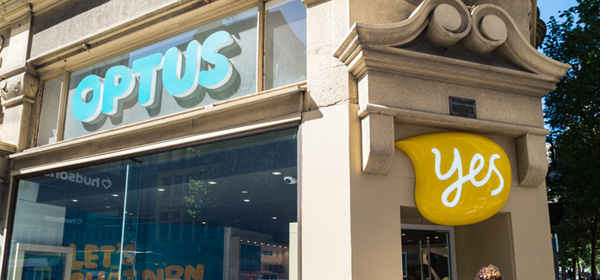Hard on the heels of Telstra advising it would compensate 42,000 customers last month for failing to deliver advertised NBN speeds, this week Optus is in the hot seat. And stay tuned for who is next.
There will be more, according to Rod Sims, chair of the Australian Competition and Consumer Commission (ACCC).
Optus has announced a range of compensation options – including refunds, plan discounts and a waiver for contract cancellations – for almost 9000 affected customers who bought NBN services between 1 September, 2015, and 30 June this year, and who were being billed for NBN speeds that Optus could not deliver.
The ACCC said the slower speeds were due to “technical limitations” on the customers’ fibre to the node (FTTN) or fibre to the building (FTTB) NBN connections.
Optus claimed its top-of-the-range plan, Boost Max, would reach maximum download speeds of up to 100 megabits per second (Mbps) and maximum upload speeds of up to 40Mbps.
The ACCC says that close to half the FTTN customers on the Boost Max plan (5430 people) were unable to reach such speeds. A further 2337 customers could not reach half that speed.
“Worryingly, many affected Optus FTTN customers could not even receive the maximum speed of a lower-tier plan,” Mr Sims said.
“This is a concerning trend we have seen throughout the industry and we are working to fix this.
“This undertaking is yet another step towards an industry standard of providing accurate information to consumers about the speeds they can achieve in real-world conditions, and ensuring that consumers get what they pay for.
“We are continuing to investigate other retail service providers selling NBN broadband plans, and will take enforcement action if we consider that they are not delivering on their promises to customers.”
Optus has committed to contacting affected customers by 2 March, 2018. In addition, it will check within a month of signing on that new customers are receiving the NBN speeds promised in their plan.
A Telstra spokesman told YourLifeChoices last month that its customers would be repaid all the money they had paid under their respective plans. For instance, a customer who had been on the lowest plan, $69 a month for a year, would receive $828.
Mr Sims has warned other Telcos to ensure they are selling realistic plans.
“The remainder of the industry continues to advertise internet plans using unhelpful speed ranges,” he says.
Telcos will be held even more accountable next month when the ACCC launches its $6.5m broadband speed monitoring program.
NBN maintains it is doing its bit for transparency by providing ISPs with an “estimated attainable line speed” before ISPs connect customers to the network, plus weekly reports on wholesale speeds.
Most ISPs offer customers speed tests, but these generally relate to the connectivity from the ISP to the consumer. The speeds actually experienced might be much lower than the “peak” speed advertised.
Experts recommend using an independent speed testing service as well as the one recommended by the ISP. And they advise that you repeat the test at different times of the day. Speed tests include: Oz Broadband Speed Test, Speed of Me, Speedtest.net and Testmy.net.
Have you been affected? Are you with a different telco that is not delivering?
Related articles:
NBN rollout slammed
Higher prices for slower speeds
NBN scam targets seniors

